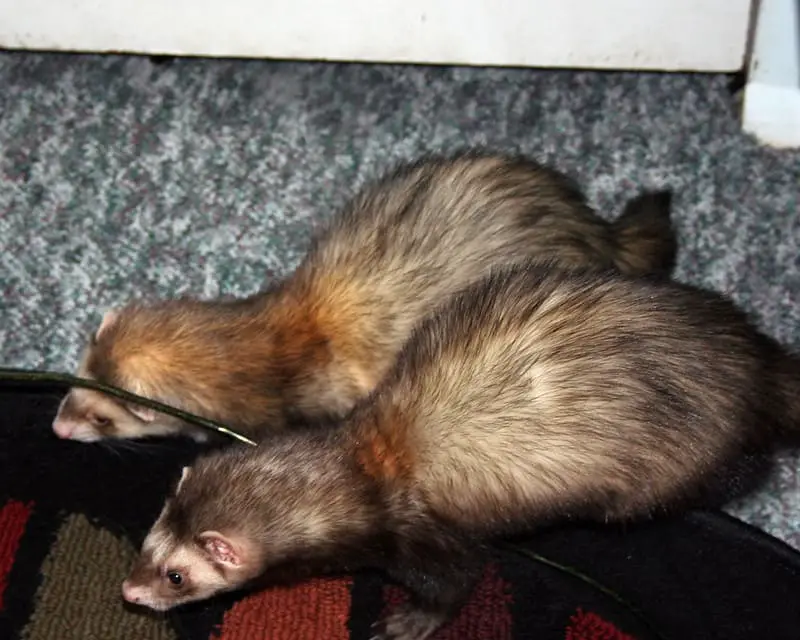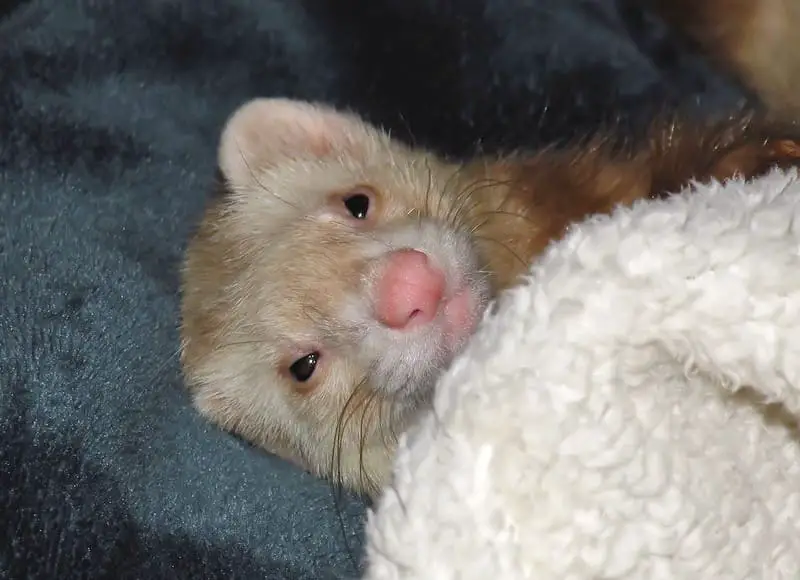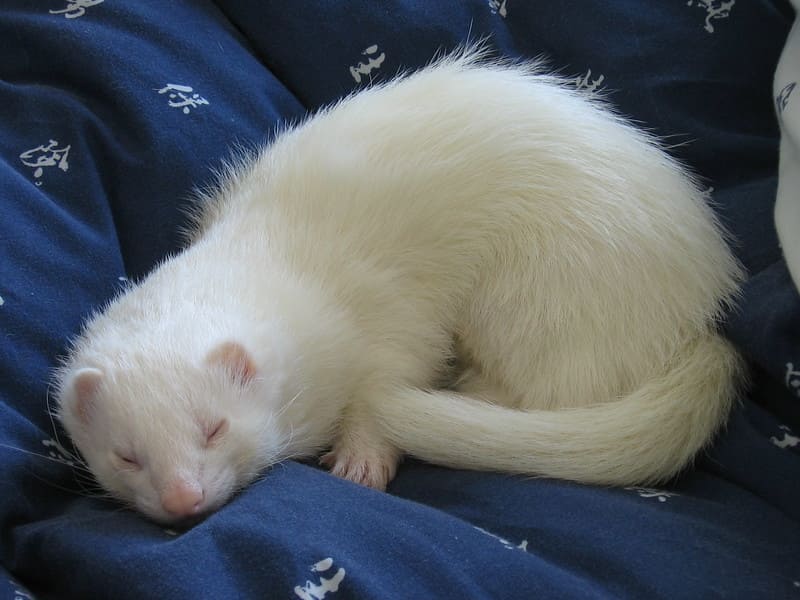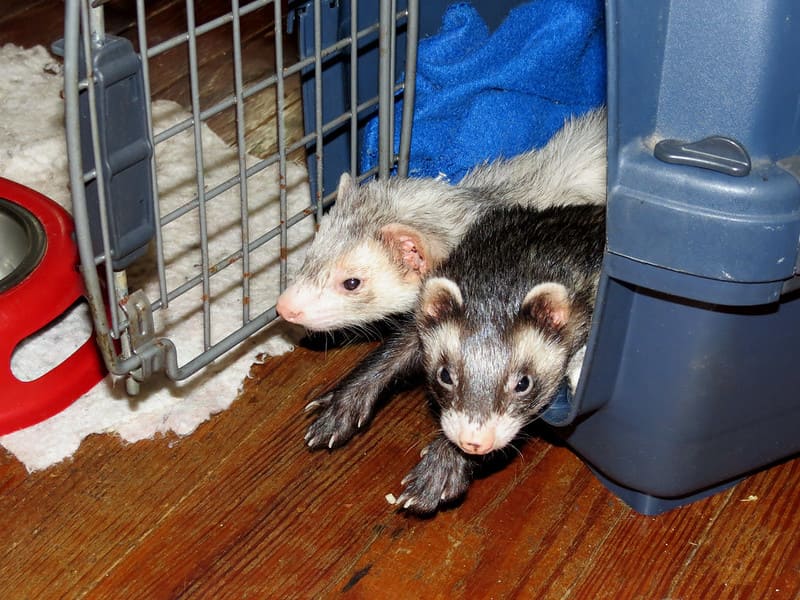Ferrets, small carnivorous mammals closely related to weasels, are popular pets in many parts of the world. While they are known for their playful and inquisitive nature, one common concern potential ferret owners have is whether ferrets are smelly pets. This article explores the factors that contribute to ferret odor, ways to manage it, and the overall experience of having a ferret as a pet.

Understanding Ferret Scent Glands
To address the question of whether ferrets are smelly pets, it’s important to understand the biology behind ferret scent glands. Ferrets have specialized scent glands located near their anus and on the skin of their head. These glands produce a musky secretion that serves several purposes in the wild.
Marking Territory
In the wild, ferrets use their scent glands to mark their territory and communicate with other ferrets. They secrete their scent on objects, other ferrets, and even their food to establish ownership and warn other animals to stay away. This is a natural behavior and is not something that can be completely eliminated in domesticated ferrets.
Mating Behavior
Ferrets also use their scent glands to communicate during mating season. Both male and female ferrets produce scent to attract potential mates. This behavior can be especially strong during the breeding season, contributing to the perception of ferret odor.
Identifying Individuals
Scent glands help ferrets recognize one another. Each ferret has a unique scent profile, which allows them to identify family members, friends, and potential threats.

Factors That Influence Ferret Odor
Several factors influence the level of odor associated with ferrets, and it’s essential to consider them when evaluating whether ferrets make smelly pets.
Diet
One significant factor that affects ferret odor is their diet. Ferrets are obligate carnivores, meaning their diet should primarily consist of high-quality meat-based foods. Feeding them an improper diet can lead to an unpleasant body odor. Low-quality pet foods with fillers and excessive carbohydrates can result in digestive issues and an increase in odor.
Cleanliness
Proper cage and litter box maintenance is crucial in controlling ferret odor. Dirty bedding, litter boxes, and living conditions can lead to a buildup of odor. Ferrets are known for being tidy animals, and they may refuse to use a dirty litter box, which can exacerbate the problem.
Health
Ferret health can significantly impact their odor. Illnesses, dental problems, or digestive issues can lead to foul-smelling breath and body odor. Regular veterinary care and a balanced diet are essential for maintaining a healthy, odor-free ferret.
Spaying and Neutering
Unspayed female ferrets can develop a strong odor during their heat cycle. Spaying female ferrets can help reduce this odor. Neutering male ferrets can also help in managing scent gland secretions. Many ferret owners choose to spay or neuter their pets for this reason.
Cleaning and Grooming
Regular bathing and grooming can help reduce ferret odor. It’s essential to use a ferret-specific shampoo and avoid over-bathing, as excessive bathing can strip the skin of natural oils and lead to increased scent gland secretions.
Environmental Factors
The environment in which your ferret lives can also affect its odor. If you keep your ferret in a well-ventilated area with good air circulation, the odor may be less noticeable. However, if you have a small, poorly ventilated space, the scent may become more concentrated.
Genetics
Some ferrets may simply have stronger scent glands or produce more secretions than others due to genetic factors. If you have multiple ferrets, you might notice variations in the intensity of their odors.

Managing Ferret Odor
While ferrets do have scent glands, and some level of odor is unavoidable, there are several steps you can take to manage and minimize ferret odor in your home.
Proper Diet
One of the most effective ways to reduce ferret odor is to feed your pet a high-quality diet. Look for ferret-specific food that lists meat, not plant-based ingredients, as the primary source of protein. This can lead to better digestion and less odor.
Clean Living Area
Regular cleaning and maintenance of your ferret’s living area are crucial. This includes cleaning the cage or enclosure, litter boxes, and bedding. Make sure to change litter frequently, and use unscented, dust-free, and ferret-safe bedding.
Spaying and Neutering
As mentioned earlier, spaying and neutering can significantly reduce ferret odor, especially during the breeding season. This is a common practice among ferret owners for both odor control and health reasons.
Grooming
Regular grooming can help control odor. Brush your ferret’s fur to remove loose hair and debris, and bathe your ferret only when necessary. Over-bathing can lead to increased scent gland secretions.
Odor-Control Products
There are ferret-specific odor-control products available in pet stores. These products can help reduce the intensity of ferret odor in your home. However, it’s essential to choose products that are safe for ferrets and follow the manufacturer’s instructions.
Adequate Ventilation
Good air circulation and proper ventilation can make a significant difference in managing ferret odor. Ensure your ferret’s living space is well-ventilated, and consider using air purifiers to help remove odors from the air.
Regular Veterinary Care
Regular check-ups with a veterinarian can help detect and address health issues that may contribute to ferret odor. A healthy ferret is less likely to have an intense smell.
Odor-Control Tips
Here are some additional tips for controlling ferret odor:
- Wash Bedding: Wash your ferret’s bedding regularly to remove odors and dirt.
- Use Ferret-Safe Cleaners: When cleaning your ferret’s living area, use ferret-safe cleaning products. Avoid harsh chemical cleaners that can irritate your pet’s respiratory system.
- Litter Box Placement: Place the litter box in a quiet, private area to encourage your ferret to use it consistently.
- Regular Playtime: Giving your ferret plenty of exercise and playtime can help reduce stress, which can, in turn, reduce scent gland secretions.
- Control Ferret Access: Limit your ferret’s access to certain areas of your home if you want to reduce the odor in specific areas.
- Hydration: Ensure your ferret has access to fresh water at all times to prevent dehydration, which can affect the odor of their urine.

Conclusion
So, are ferrets smelly pets? The answer is a bit nuanced. Ferrets do have scent glands that produce a musky odor, but with proper care, diet, grooming, and hygiene practices, you can effectively manage and reduce this odor. While some ferret owners may be more sensitive to the scent than others, many find that the joy of having a ferret as a pet outweighs the mild odor they produce.
In the end, owning a ferret comes with a responsibility to provide a clean, healthy, and stimulating environment for your furry friend. With the right care and attention, you can enjoy the companionship of these curious and affectionate animals without being overwhelmed by their natural scent.
